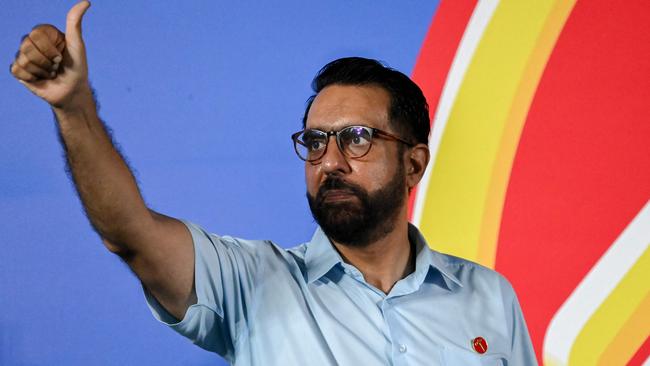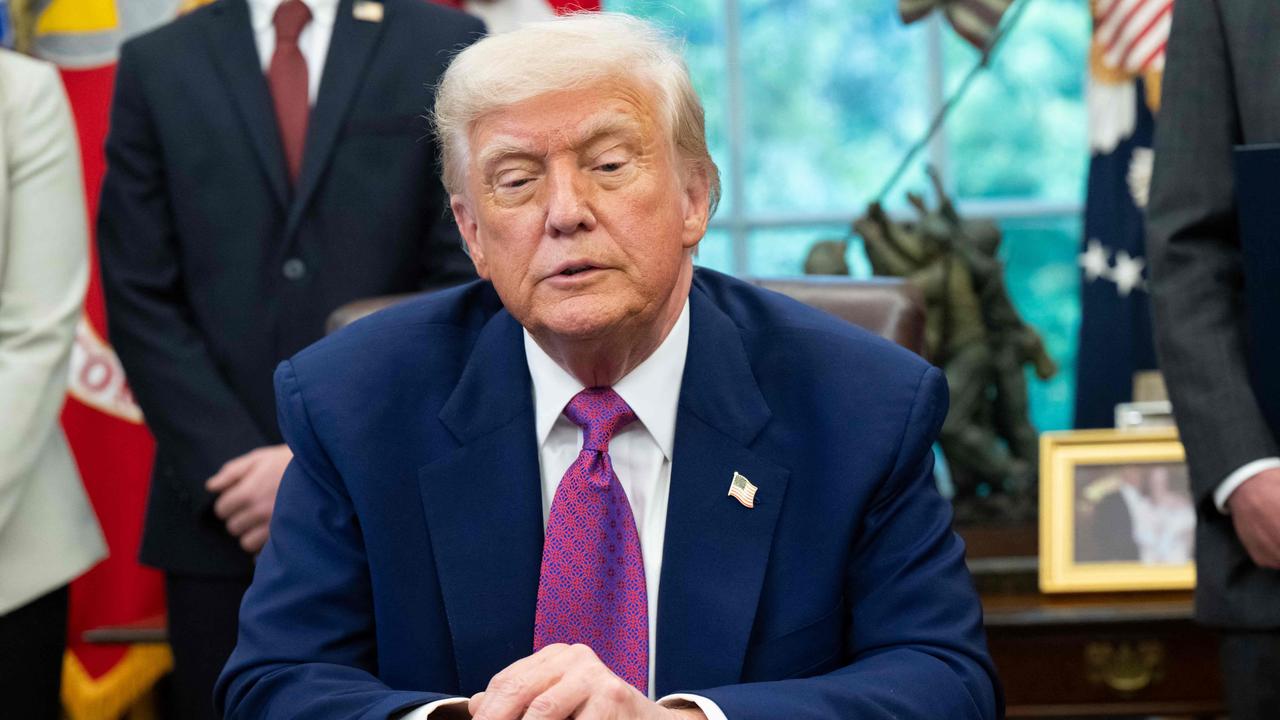Singapore’s ruling People’s Action Party says more democracy too risky
Singapore’s long-dominant People’s Action Party has warned voters that the city state cannot afford more democracy in such uncertain times.

Singapore’s ruling People’s Action Party has warned on the eve of elections that the city state cannot afford an “ordinary democracy”, and that any vote for opposition parties would hurt the government’s ability to navigate turbulent trade wars and an uncertain world order.
Prime Minister Lawrence Wong told supporters at a final rally before Saturday’s polls that voting for the opposition would mean alternative voices in parliament but a weaker government at a time when strong global representation was vital.
“Ultimately, you will weaken (us), Singaporeans, at a time when Singapore is facing a very serious and growing challenge,” he said.
“We must expect more pressure on us, and to navigate these pressures it will take experience and skills. It will take people in government who have built up trust and close relationships with their counterparts in both America and China.
“You can’t build this overnight. Trust, relationships take time to cultivate.”
Former PAP prime minister Lee Hsien Loong, who retired last year after 20 years in office, had an even more pointed message for voters on the final campaign, warning that Singapore could not afford to become an “ordinary democracy”.
“If we become an ordinary country, an ordinary democracy, then our performance, I can tell you, will become ordinary,” he said.
The PAP (of Singapore’s first prime minister, Lee Kuan Yew) has ruled the Southeast Asian city state uninterrupted for 59 years and is expected to be returned to power on Saturday with a comfortable majority.
But the PAP is facing an ascendant opposition Workers’ Party making headway with younger voters – 224,000 first-time voters go to the ballot box on Saturday – who are angry over cost-of-living pressures and less affordable housing, and more than ever are looking for more diverse voices in parliament.
Prices for Singapore’s public Housing and Development Board system are pegged to market prices, which have soared in recent years as mainly wealthy Chinese investors have looked to invest in the reliable city state.

In 2020 elections, the PAP won 60 per cent of the popular vote but captured 83 of 93 parliamentary seats thanks to Singapore’s representative voting system in which groups of candidates, rather than individuals, compete to be elected as constituency representatives.
The Workers’ Party won a record 10 seats at the last election and has a good chance of adding more seats to its haul at this election, with analysts suggesting three group representative constituencies are too close to call.
WP leader Pritam Singh urged supporters on Thursday night to consider the “collective potential” of his party’s 26 candidates to create a more balanced parliament given “the PAP, as we know in our heart of hearts, will win the elections”.
“Just 65 seats will give the PAP a two-thirds majority. With that, the PAP will be able to amend almost any part of the constitution, even if the opposition disagrees,” Mr Singh said.
Ja-Ian Chong, associate professor of political science at the National University of Singapore, said at this election Singaporean voters were being offered two distinct visions for the city state.
“The PAP says that because things are uncertain and dangerous you need a pair of steady hands, whereas the Workers’ Party says that because things are different the same old may not be good enough anymore,” he told The Australian.
For all the PAP’s scare campaigning, however, there was “something to those concerns … because we may be looking at the reconfiguration of the international economic system”, he added.
That could have serious implications for Singapore, a tiny island that has built its success on being “a really good middle man” for the movement of capital through the city state to other parts of Asia, as a services hub and as a major shipping port.
“All of that rests on the global trading order. To the extent that big economies and others are looking at shutting themselves off more, the volume that comes through Singapore may decrease so the middleman model may not be as lucrative as it used to be,” Professor Chong said.
Add to that a less dependable US security guarantee and there was a risk that “Beijing may be tempted to be more adventurous”.




To join the conversation, please log in. Don't have an account? Register
Join the conversation, you are commenting as Logout